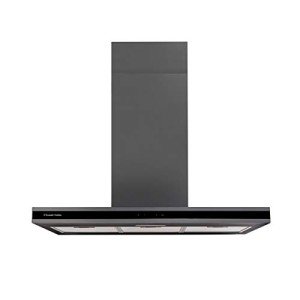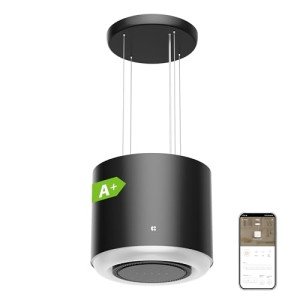
19
May9 Things Your Parents Teach You About Extractor Fan For Island Hob
The Essential Guide to Extractor Fans for Island Hobs
In modern-day cooking areas, the island hob has become a standout feature, serving as a centerpiece for culinary creativity and social events. Nevertheless, with the development of open-plan living areas, the need for efficient ventilation becomes crucial. An extractor fan for an island chimney hood hob is not simply a luxury; it's a requirement. This short article will explore the factors you ought to consider installing an extractor fan, the types available, their functions, and the very best practices for installation and upkeep.
Why Install an Extractor Fan for Island Hobs?
Island hobs are typically positioned away from walls, making standard overhead extraction hoods impractical. Here are some essential reasons why an extractor fan is vital for island hobs:
Air Quality Improvement: Cooking creates smoke, steam, and odors. An extractor fan effectively eliminates these impurities, resulting in a cleaner kitchen environment.
Heat Reduction: Extractor fans help expel hot air, contributing to a more comfortable cooking environment.
Protection Against Grease Build-Up: Continuous exposure to cooking fumes can lead to grease accumulation on surfaces. An extractor fan alleviates this risk.
Visual Appeal: Many modern extractor fans are designed to complement kitchen visual appeals, becoming trendy additions rather than eyesores.
Kinds Of Extractor Fans
When selecting an extractor fan for extractor Fan for island hob an island hob, it's crucial to consider the numerous types offered on the market. Here are the most typical:
| Type | Description | Pros | Cons |
|---|---|---|---|
| Ducted | These systems vent air outside through a duct. | Highly efficient at getting rid of smells and smoke; enhances air quality. | Setup can be intricate; needs a path to exterior. |
| Ductless (Recirculating) | Filters air and recirculates it back into the kitchen. | Easier to set up; no external vent needed. | Less effective in removing smoke and smells; needs regular filter modifications. |
| Downdraft | Retractable system placed behind the hob. | Discreet style; effective for island extractor settings. | Fairly expensive; may not be as powerful as standard cooker hoods for islands. |
| Wall-mounted | Comparable to traditional hoods however designed to hang over islands. | Reliable and readily available in numerous styles. | Needs sufficient area; can block views. |
Key Features to Consider
When purchasing an extractor fan for an island cooker hood black hob, there are numerous features to keep in mind to make sure optimal performance and complete satisfaction:
Suction Power: Measured in cubic meters per hour (m THREE/ h), this shows how successfully the fan can eliminate air. A higher score is normally preferred for effective ventilation, specifically in large, open spaces.
Noise Level: Measured in decibels (dBA), quieter designs are preferable for convenience, especially in open-plan layouts.
Filter Quality: Ensure the fan is equipped with premium filters (e.g., activated carbon filters for ductless models) that can be quickly replaced.
Control Options: Look for fans with instinctive controls such as touchscreens, remote controls, or wise features that enable for smooth operation.
Energy Efficiency: Opt for energy-rated models to minimize energy intake and long-term costs.
Setup Best Practices
Installing an extractor fan needs mindful preparation to optimize its efficiency. Here are some essential pointers:
Positioning: Mount the fan 65-75 cm above the cooking surface for optimum performance.
Appropriate Ducting: If choosing a ducted fan, Extractor Fan For Island Hob make sure that ducting is kept straight and as short as possible to decrease airflow resistance.
Electrical Work: Hire a licensed electrician to make sure that all electrical connections adhere to security requirements.
Follow Manufacturer Guidelines: Adhere strictly to the installation guidelines supplied by the maker to ensure security and functionality.
Professional Installation: Where necessary, seek advice from expert installers for complex systems, especially those requiring duct work.
Maintenance Tips
To guarantee long-lasting performance from your extractor fan, regular maintenance is vital. Think about the following ideas:
Clean Filters: Depending on use, clean or change filters month-to-month for optimum air quality.
Inspect Ducts: Regularly inspect ductwork for any obstructions or damage and tidy as necessary.
Ward off Grease Buildup: Periodically wipe down surfaces to avoid grease accumulation.
Utilize a Soft Cloth: For regular cleansing, use a wet cloth and moderate detergent, avoiding abrasive materials.
Frequently asked questions
1. How do I pick the best size extractor fan?
Determine the required air flow using the room size. Determine it based on the kitchen's volume (length × width × height) and multiply by 10 to 15 air modifications per hour.
2. Are ductless extractor fans efficient?
While ductless fans are simpler to set up, they are less efficient compared to ducted systems. They can cleanse the air however may allow some smells to stick around.
3. Can I install an extractor fan myself?
It is recommended to seek professional assistance for setup, particularly for ducted fans, as improper setup can lead to reduced efficiency and safety risks.
4. How typically should I replace extractor fan filters?
For optimum performance, replace or clean filters every 1-3 months, depending upon cooking frequency and the kind of filter.

5. Do extractor fans consume a lot of electrical energy?
Modern extractor fans are created to be energy-efficient. Inspect the energy score before purchase to pick a more affordable option.
An Extractor fan For Island hob fan for an island hob not just boosts cooking experiences but likewise safeguards indoor air quality, contributing to a more satisfying kitchen environment. By thinking about the types readily available, vital features, and proper installation and upkeep, house owners can make informed decisions that match their requirements. With the right extractor fan, cooking can be an enjoyable and healthy leisure activity, devoid of concerns about air quality and convenience.


Reviews